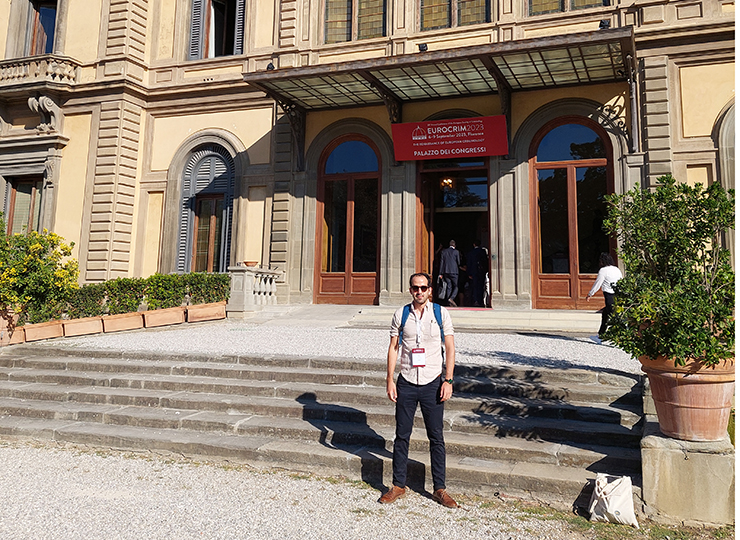CrimSL PhD student Diego Tuesta presented a paper at the 23rd Annual Conference of the European Society of Criminology in Florence, Italy on September 8, 2023 as part of the session entitled "Criminalising beyond the usual limits."
He presented "Mapping the strategies of penal extractivism: Evidence from Espinar, Peru," which he co-authored with Maritza Paredes of Pontificia Universidad Católica del Perú.
The research was funded by the Dean's International & Indigenous Initiatives Funds (DIIIF), Faculty of Arts & Science, University of Toronto, and also received a financial contribution from CrimSL's Research Cluster on Racism and Inequality.
Abstract: This paper investigates the relationship between penal governance and mining capitalism. Drawing upon the mining conflict of Espinar (Peru), where an ongoing process of criminalization against Indigenous communities takes place, we study the strategies of police surveillance and penal coercion used by the Peruvian state to handle mining protests and safeguard mining extractivism. These strategies include indictments against demonstrators, systematic use of state of emergency, private policing, and transferring criminal cases to distant jurisdictions. This study is based on 29 semi-structured interviews with actors who share inside knowledge of the criminalization process: police officers, prosecutors, environmental defenders, and defence attorneys, among others. The objective is to explain why, despite all the incentives, the state cannot achieve sentencing outcomes and address social unrest.
The conference was held at Florence's Palazzo dei Congressi and Educatorio di Fuligno, September 6-9, 2023. The 2023 conference theme was "The Renaissance of European Criminology."



